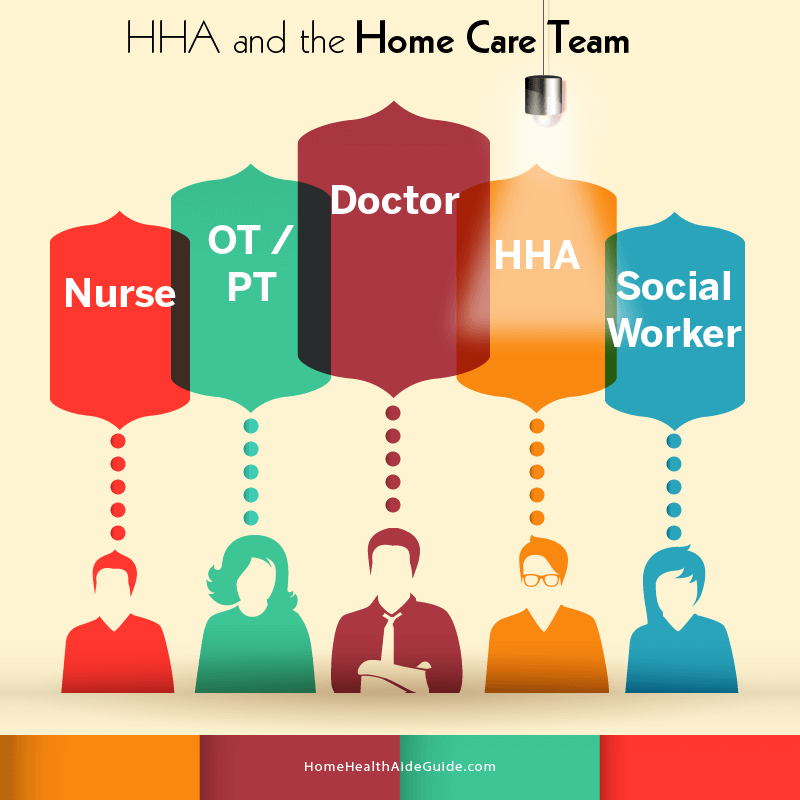Debunking Myths: The Truth About Home Health Aides

Home health aides (HHA’s) are always in demand.
Working in the home of elderly or disabled patients can be a rewarding career in 2024. Many stay in the role for years and others use it as a stepping stone to other careers in the medical profession.
There is a tremendous need for certified home health aides in . It is the fastest growing job.
With the proper training and a passion to help others a home care aide is rewarding profession in an industry that shows no sign of slowing.
Home health aides are growing by leaps and bounds and with that growth are many misconceptions about what they do and who they are.
They go about their business taking care of people in their homes, from job to job and working nights weekends and holidays.
If you’re considering being a home health aide or hiring one for a loved one don’t let the following non-truths stop you.
Here’s a closer look at five lies about us.
Home health aides have no aspirations to advance in the health profession.

Just not true.
More than three-fourths (80.0%) of home health aides want to become a nurse. A higher percentage of female aides (81.1%) than male aides (59.5%) are aides because they wanted to become a nurse.
The profile of a home health aide will surprise you!
The percentage of aides with at least a high school diploma or GED is more than 62%, compared with 84% in the U.S. population aged 25 and over.
Home health aides are on the front line each day improving the lives and care of patients. With advance training and education they can provide enhanced levels of support to clients in their homes.
Many stay in their role for years, but may move from one agency to another or go from part-time to full-time. For the home health aides that advanced into other medical related careers they tend to head into medical assistant, certified nurse assistant or redirected nurse.
Home health aides are overwhelmingly women of color or illegal immigrants.

Not really… a little more than one-half home health aides are white (54%) while a little more than two-thirds (30%) of aides are black.
A whopping 92% of home health aides are female.
Born in the USA? Most health aides are U.S. citizens (88%).
Being a home health aide is nothing more than watching someone in their home and making sure they’re safe.

Well, not quite. A home health aide’s duties are quite complex.
They include direct care tasks such as bathing, dressing or feeding a client. There is also [light] housekeeping, meal preparation and shopping. And in some states, home health aides may also supervise a client’s medications, and perform basic nursing tasks such as taking vital signs.
Many times a home health aide can also be a health coach taking on additional role in the overall health of the patient. (This requires a bit more training but it is a growing trend in home care.)
HHA’s may be a stable source of contact for home-bound patients who may have little social contact with the “outside” world.
And home care workers need to take care of themselves as they are exposed to many on-the-job hazards. And they are exposed to a variety of serious or even life-threatening hazards.
These dangers include overexertion; stress; guns and other weapons; illegal drugs; verbal abuse and other forms of violence in the home or community; blood borne pathogens; needle sticks; latex sensitivity; temperature extremes; unhygienic conditions, including lack of water, unclean or hostile animals, and animal waste.
Long commutes from worksite to worksite also expose the home healthcare worker to transportation- related risks.
Home health aides are not happy with their career choice.

Wrong.
Seventy-two percent of aides would definitely become an aide again—a measure of commitment to the field of home health care, and 84.5% would probably or definitely take their current job again—a measure of commitment to their current job.
Older home health aides were more likely than younger aides to say they would become an aide again.
Virtually all aides felt their work was important (96.5%).
Home health aide jobs are boring and routine.

Really?
Follow one around for a week and see where she goes and what she does and for whom.
She can be helping an elderly gentleman on Monday for the full day; Tuesday she can be across town with a child recovering from a brain injury and the rest of the week helping a middle-aged woman who has recently suffered a stroke.
There is never a dull moment in their day – she is on the go helping folks in their home and providing an extremely valuable service. He/she is a key component in the home care team.

The job is often physically demanding due to the nature of the work, moving patients, cleaning, and other physical tasks.
Some home health aides may work with multiple patients for a few hours per day or per week, while others may work their full week with one patient, depending on the needs of the patient or the agency. Sometimes, weekend or evening work may be required as well.

